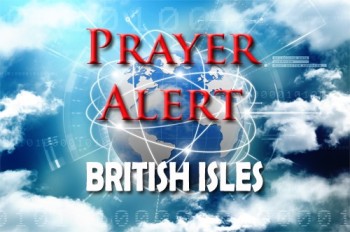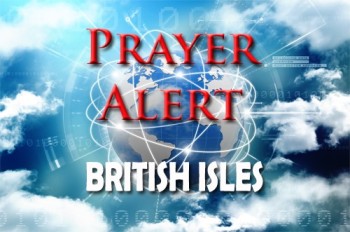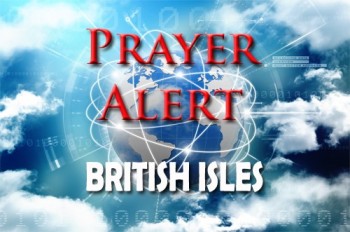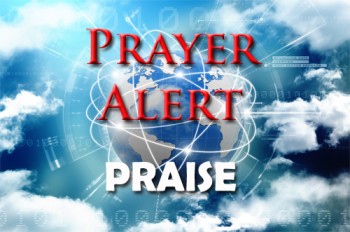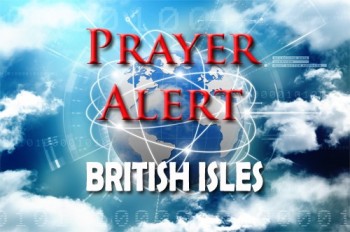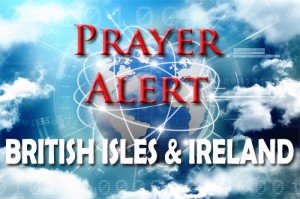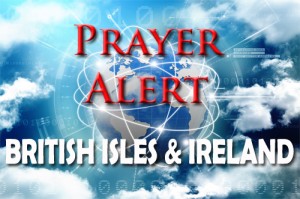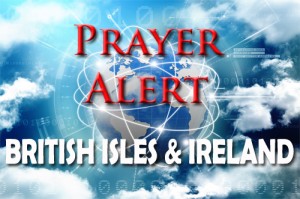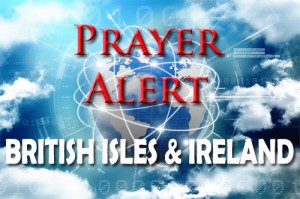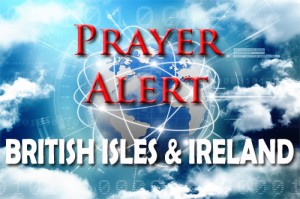Displaying items by tag: modern slavery
Products of slavery in the UK
We are approaching the celebrations of Easter, the resurrection of Christ. As we enter Lent we may choose to fast from chocolate, phones or coffee. Right now, people are being exploited to make these everyday products. Slavery is in the supply chains of everything - the clothes we wear, the coffee we drink, the technology we use and the chocolate we eat. Slavery has been linked to the supply chains of many everyday products and commodities. Nestle, Mars and Hershey all source cocoa from West Africa, where child labour and forced labour still persist. One in three workers in Malaysia’s electronics sector may work under conditions of forced labour. Coltan and other conflict minerals in electronics devices often come from forced labour in illegal mining whose profits support armed forces. Forced labour is big business, with profits around £125 billion. Please pray that UK businesses become increasingly aware of slavery in supply chains.
UK reviews how to tackle modern slavery
The UK’s work to tackle modern slavery in developing countries has had limited long-term impact. Its strategy did not build on existing international efforts and experience, and failed to adequately involve survivors - though the Government played a prominent role in raising the profile of the issue globally. Consequently the Government is now reviewing its strategy, to shape how the UK tackles modern slavery in years to come. Civil society organisations were consulted on the development of this strategy. Parliament scrutinised the situation at a hearing on 14 April. Now there are follow-up discussions on government responses to various recommendations. Please pray that key points on access to justice will form part of the Government’s strategy. This process is a key link in the accountability chain, providing Parliament and the public with an account of how well government departments have responded to reviews.
Modern slavery: prayer and praise
Pray that the new UK government will prioritise efforts to eradicate modern slavery, both in the UK and around the world. Pray that the departments with responsibilities to tackle slavery will be strengthened, and their efforts focused on achieving sustainable change by protecting those who are vulnerable to abuse, and ending impunity. Also let us praise God for the rescue of 24 modern slavery victims in Southwark this week. The 19 adults and five children rescued by police from five different nail bars in London are thought to have been trafficked from Vietnam. They are now being supported by specially-trained officers, and receiving medical care. Pray that God gives them a hope and a blessed future.
App is catching criminals
On 7 June 2018 we prayed for an awareness-raising phone app, commissioned by the CofE, to become a valuable part of intelligence gathering that combats an estimated 11,700+ people trapped in UK modern-day slavery - starting with car washes. To date, police have been alerted to 930 reports of potential modern-day slavery at car washes, thanks to the app. Users spotted potential signs of modern slavery or labour exploitation, which they marked off against the app checklist. Then they called the Modern Slavery Helpline anonymously to inform the authorities. Nottingham University said the application was downloaded 8,225 times during its first six months. Bishop Alastair Redfern said, ‘This research shows that the Safe Car Wash app has made an excellent start towards mapping the extent of modern slavery and labour exploitation in hand car washes, and, crucially, raising public awareness of this issue’. See
Slavery in the UK
The Government estimates that tens of thousands of people are slaves in the UK. Most are trafficked from Albania, Vietnam, Nigeria, Romania and Poland. There are also significant numbers of British national slaves. Forced labour is in agriculture, construction, hospitality, manufacturing, and car washes. Women and girls are trafficked for sexual exploitation or domestic slavery. Children are forced into cannabis production, petty theft and begging. In 2009 the Government set up a mechanism to which potential cases were referred to access relevant support. It wasn’t fit for purpose. Slavery victims were not supported, and traffickers got away with their crimes. A new Modern Slavery Act was introduced in 2015. Research has found that the number of potential victims of trafficking and modern slavery reported to the authorities has risen by over 80% in two years, and the number of modern slavery cases involving UK children is alarming. See
British victims of modern slavery
A report has revealed that the number of British people referred to the Salvation Army’s specialist support for adult victims of modern slavery has nearly doubled since last year to 86 people - and that is the tip of the iceberg. Traffickers systematically target and exploit the vulnerable; those with mental health problems, people without secure family networks or experiencing homelessness or addicts. After years of substance misuse, 30-year-old J was without work or a home. At this extremely vulnerable stage in his life, he was targeted by dealers who forced him to sell drugs on their behalf around the country with promises of money, which soon changed to threats and coercion making it impossible for him to escape. He was rescued when police arrested him for dealing, but soon realised he was more victim than perpetrator. After months in a Salvation Army safe house, J is now living independently and receiving professional support to overcome his addictions.
Modern Slavery
More than 5,000 potential modern slaves were referred for help last year but the CPS only prosecuted 239 suspects, a small fraction of potential cases flagged to authorities. The Crown Prosecution Service (CPS) said it was committed to improving its response to forced labour and sexual and criminal exploitation after MPs warned that a national strategy had ‘yet to result in coherent action’. Alison Saunders, the outgoing director of public prosecutions, said, ‘Modern slavery has a devastating, lasting impact on its victims. There is no place in our society for those who enslave others, whether for work, sexual or criminal exploitation or domestic servitude. Referrals to the CPS from police and agencies rose by a third and prosecutors said the increase was part of a ‘dedicated drive to clamp down on slavery-related crime’.
Victims of slavery in UK
There are 13,000 slaves in Britain. Many argue there are many more. Those who escape suffer post-traumatic stress disorders. Many fear the police. Trust is so eroded that some are afraid to engage with charities. P worked twelve-hour days at a car wash after a ‘friend’ offered him the job. He soon discovered he wouldn't get paid. Worse was to come. The house he'd been placed in was guarded by two or three big men who took his phone and threatened to kill him if he tried to escape. One night when his guards were drunk he ran to the police. He now works in the Co-op’s ‘Bright Futures’ scheme, which helps survivors of modern slavery into work. Slavery survivors are given a four-week work placement, which ends in a non-competitive interview. If both parties are happy there is a full-time job on offer.
End slavery and trafficking
18 October was Anti-Slavery Day. 40 million people are trapped in slavery worldwide, and have no one to protect them. In many places laws against slavery are not enforced by police, so slave owners and traffickers can prey on the poor and vulnerable without fear of consequences. According to a report, UK police don’t tackle modern slavery because cases are too difficult and senior officers believe the public lack sympathy for the victims. Sky news reported that 17 police forces held data on convictions for slavery; 1,265 slavery offences were reported but only 25 people were prosecuted. In the UK, slavery is not just a bad working condition. People are living under constant control and fear and facing daily physical, verbal and sexual abuse. They are trapped. The charity Hope for Justice described the current situation in the UK as ‘a human conveyor belt of slavery’. See also
Theresa May condemns modern slavery
Theresa May has told the UN that people need to wake up to the horrors of modern-day slavery, and victims must have confidence to come forward and be given the support they need. She added, ‘Modern slavery will only be defeated by making more people aware of the horrific abuses going on in their own communities’. The Prime Minister has the power to do something about this on the international platform. Two years ago, as home secretary, she brought in the most up-to-date laws in the world to crack down on modern slave-drivers. On 19 September she spoke out in an attempt to secure a global commitment by the UN to acknowledge the scandal and unite with tough action against the perpetrators. She urged leaders ‘to work collaboratively and internationally’, and ‘to look at their own situation’.
